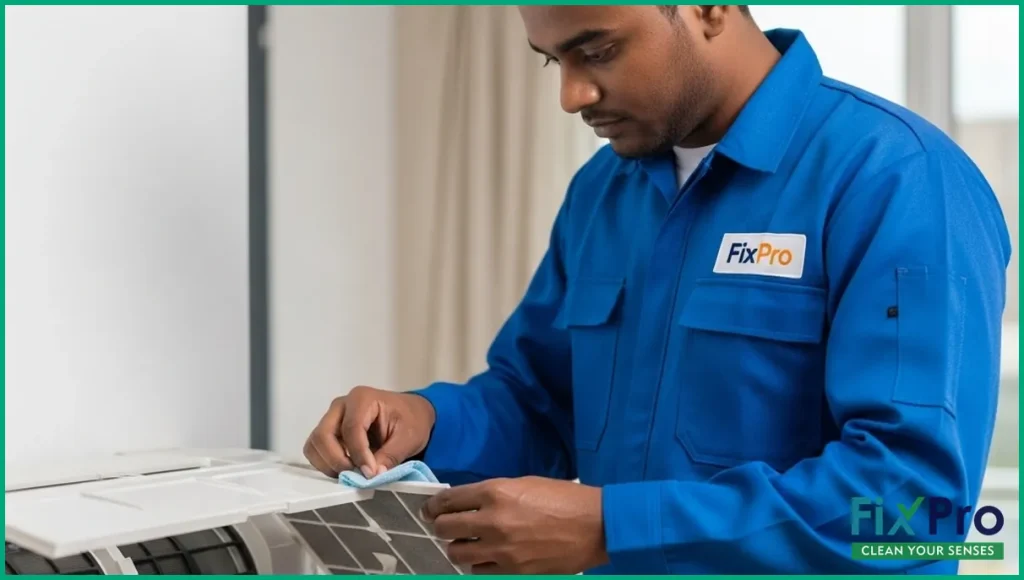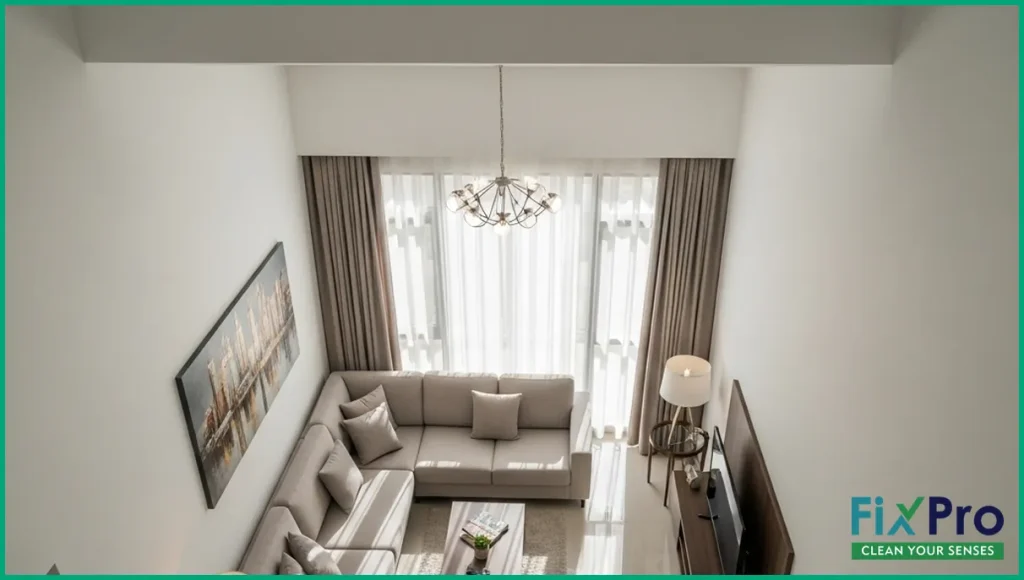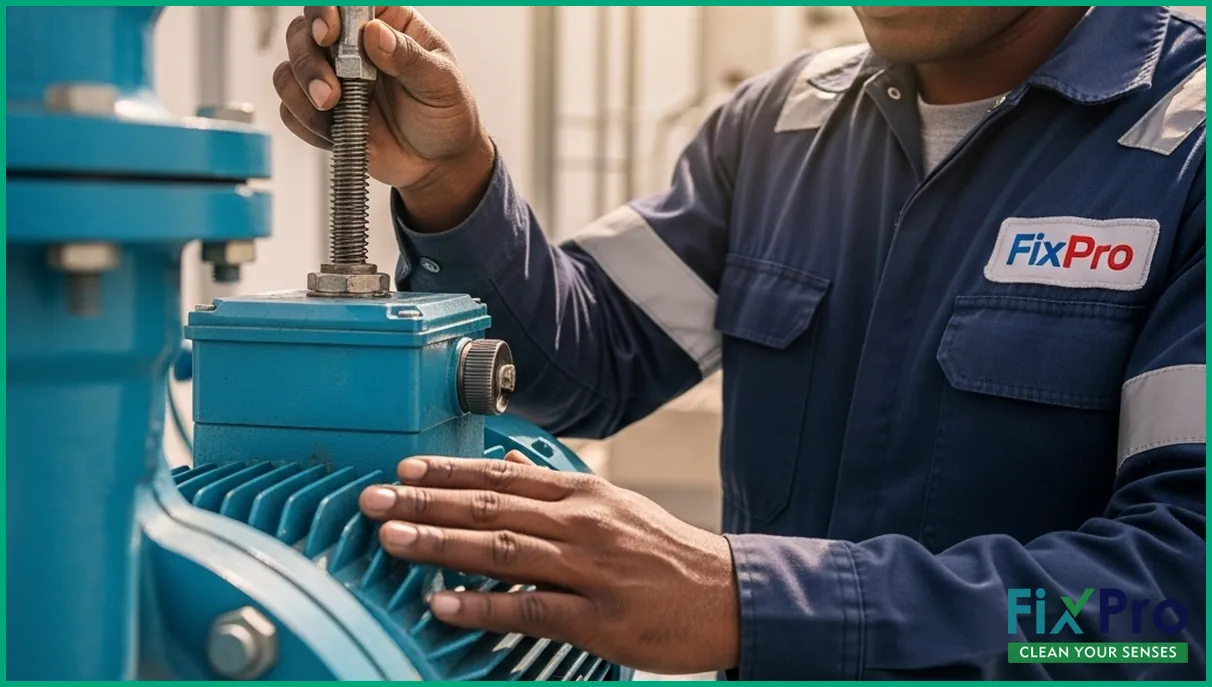
Understanding MEP Assets: Why Pumps, Panels, and Valves Matter
MEP (Mechanical, Electrical, and Plumbing) systems keep buildings in Abu Dhabi running smoothly. Pumps move water and fluids, panels distribute electricity, and valves control flow. When any of these fail, disruptions can range from mild inconvenience to major emergencies. For example, a failed chilled water pump in a high-rise can halt air conditioning on a 45°C summer day, while a stuck valve may disrupt water supply to multiple apartments.
Properly maintained assets also help conserve water and energy—both crucial in the region. For instance, a leaking pump can waste thousands of liters of water per month, while a dusty electrical panel can drive up cooling costs due to inefficiency. Regular checks and swift action can keep these systems running reliably, even during sandstorms or peak summer loads.
Top 5 Maintenance Issues With Pumps, Panels, and Valves
-
Pump Leaks and Pressure Loss
Pumps in Abu Dhabi buildings often develop leaks due to worn seals or harsh water conditions. You might notice water pooling, reduced pressure, or even strange noises. If left unchecked, leaks can damage surrounding equipment and raise utility costs. For example, in coastal areas, saltwater intrusion can accelerate seal deterioration, leading to faster leaks.
- Check for wet spots or rust near pump bases, especially after sandstorms or heavy rain.
- Inspect seals and gaskets regularly for wear, and look for mineral deposits that signal slow leaks.
- Replace faulty seals immediately to prevent escalation and consider using seals rated for high salinity if your building is near the coast.
- Before starting repairs, always shut off the pump and relieve system pressure to avoid injury.
- Pair leak checks with a review of pump alignment to avoid repeat failures.
- Keep a supply of spare seals and gaskets on-site for faster response in emergencies.
Tip — Leaks usually start small but can escalate rapidly.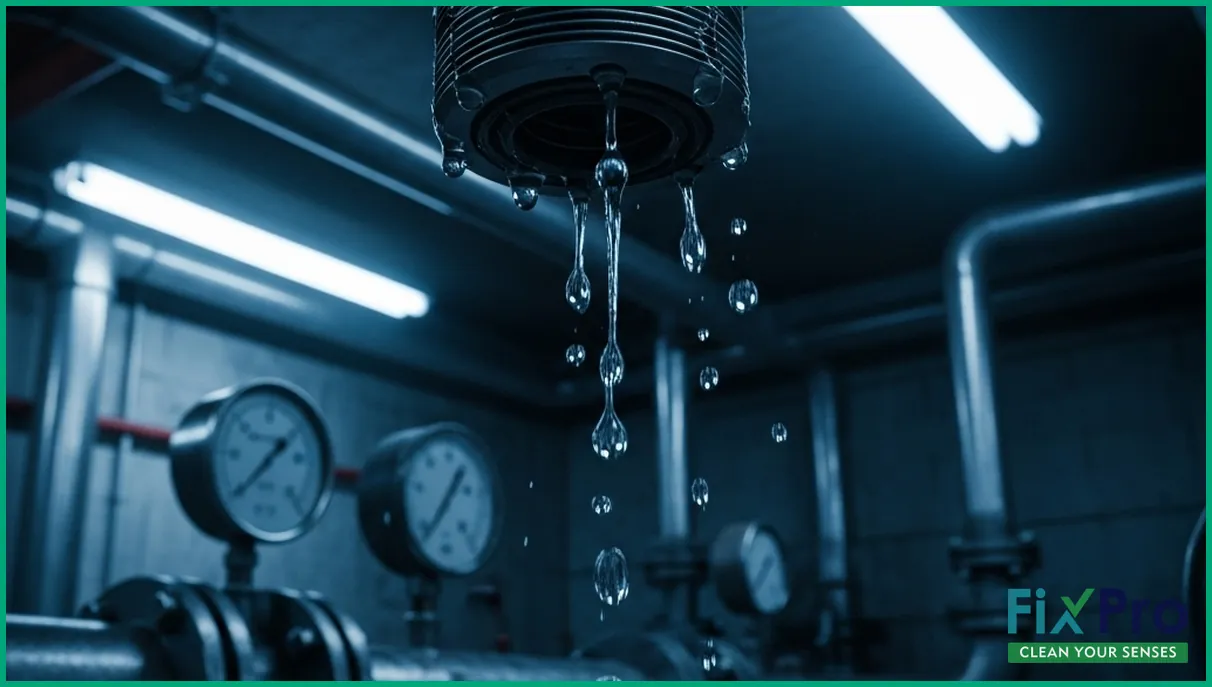
Early detection of leaks in pump seals can prevent costly repairs later. Troubleshooting: If you notice pressure drops but no visible leaks, check all joints and hose connections. Sometimes, leaks can occur in hidden or hard-to-access spots behind panels or insulation.
-
Electrical Panel Overheating
High summer temperatures in Abu Dhabi put extra stress on electrical panels. Overheating often results from dust buildup, overloaded circuits, or poor ventilation. Signs include tripped breakers, a hot panel surface, or flickering lights. In some villas, panels installed in direct sunlight are especially vulnerable, and in older buildings, outdated wiring may compound the problem.
- Keep panels dust-free and ensure ventilation grills are clear; use a soft brush or vacuum for cleaning.
- Do not overload circuits with too many devices—spread high-demand equipment across multiple circuits if possible.
- Schedule annual thermal imaging checks to spot hotspots before they cause failures.
- Install sunshades or relocate panels away from direct sunlight where feasible.
- Label all circuits clearly to help staff identify sources of overloads quickly.
- Replace old breakers with modern, temperature-rated models suitable for the region.
Fact — Dust and sand can quickly accumulate inside panel enclosures.Preparation tip: Before opening a panel, always switch off the main breaker and wear insulated gloves. Keep a fire extinguisher rated for electrical fires nearby.
Troubleshooting: If a panel overheats repeatedly, check for loose wires or corroded terminals, as these can create resistance and heat.
-
Valve Sticking or Failure
Valves control the flow of water, chilled water, or even gas. In Abu Dhabi, mineral buildup and corrosion are common due to water quality and humidity. Stuck or slow valves can interrupt cooling or water supply. For example, in irrigation systems, stuck valves can lead to overwatering or dry spots in landscaped areas.
- Operate valves periodically to prevent sticking, especially after long periods of inactivity.
- Clean and lubricate valve stems as part of routine checks; use lubricants rated for potable water if used in drinking water systems.
- Replace corroded valves before failure occurs, and consider brass or stainless steel options for better durability in harsh conditions.
- Flush lines with clean water after maintenance to remove debris that could jam valve seats.
- Keep valve access points clear of obstructions to allow for quick manual operation in emergencies.
- In multi-story buildings, check pressure-reducing valves for correct settings to avoid uneven flow between floors.
Tip — Exercising valves regularly helps prevent mineral buildup.Troubleshooting: If a valve is hard to turn or leaks after operation, inspect the packing and replace if necessary. For persistent issues, check for pipe misalignment that may be stressing the valve body.
-
Pump Motor Burnout
Continuous operation, voltage fluctuations, or poor lubrication can cause pump motors to overheat and eventually fail. You may hear grinding noises or smell burnt insulation before a complete breakdown. In Abu Dhabi, power surges during sandstorms or grid switching can also damage motors.
- Monitor motor temperature and vibration using infrared thermometers and vibration meters.
- Maintain proper lubrication schedules, using lubricants recommended by the pump manufacturer.
- Address abnormal sounds immediately—shut down the pump and inspect bearings and couplings.
- Install surge protectors or voltage stabilizers to protect motors from electrical fluctuations.
- Check and clean motor cooling fans and air vents to prevent overheating from dust buildup.
- Log motor running hours to schedule preventive maintenance before failures occur.
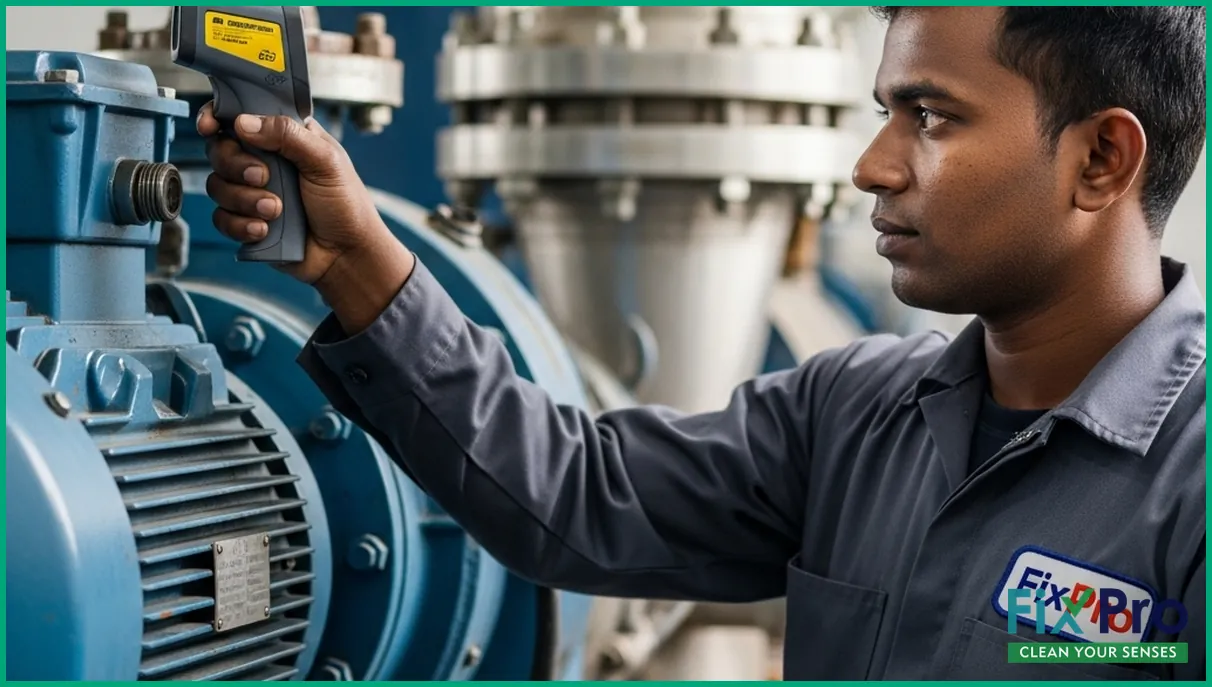
Infrared thermometers can help detect overheating pump motors early. Preparation tip: Always isolate the power supply and lock out the circuit before working on pump motors. Use a checklist to ensure all safety steps are followed.
Troubleshooting: If a motor trips the breaker on startup, check for seized bearings or blocked impellers before replacing electrical parts.
-
Corroded Electrical Connections
High humidity and salt-laden air in Abu Dhabi can corrode panel and pump electrical connections. Corrosion leads to poor conductivity, tripping, or even fire hazards. In underground basements or car parks, condensation can also contribute to rapid corrosion.
- Inspect electrical connections for discoloration or residue, and check for green or white powdery deposits indicating corrosion.
- Use anti-corrosion sprays where appropriate, especially on outdoor or basement panels.
- Tighten loose connections promptly, and replace any terminals that show significant pitting or damage.
- Seal cable entries with weatherproof grommets to block moisture and dust.
- Install dehumidifiers or silica gel packs in panel enclosures in high-humidity locations.
- Schedule quarterly electrical inspections during the humid season (June–September).
Fact — Corrosion risk is higher near the coast or in basements.Troubleshooting: If you notice intermittent electrical faults, gently wiggle wires to check for hidden corrosion or broken strands.
Comparison Table: Common Issues and Quick Fixes
| Asset | Common Issue | Quick Fix |
|---|---|---|
| Pump | Leak at seal | Replace seal and check alignment |
| Panel | Overheating | Clean dust, improve ventilation |
| Valve | Sticking | Operate and lubricate valve stem |
| Pump | Motor burnout | Monitor temperature, lubricate bearings |
| Panel | Corroded connections | Clean and tighten terminals |
Serving suggestion: Pair regular maintenance of these assets with a simple digital logbook or maintenance management software. This helps you spot patterns, schedule preventive work, and reduce downtime. For example, after fixing a leaking pump, note the date, part replaced, and technician involved for future reference.
Proactive Maintenance Tips for Abu Dhabi Buildings
- Schedule monthly inspections for all MEP assets, and increase frequency during summer or sandstorm season.
- Keep records of repairs and replacements, including photos of issues and parts used.
- Train staff to spot early warning signs, such as unusual noises, smells, or temperature changes.
- Use weatherproofing where possible to limit humidity damage—install door seals and vent covers on plant rooms.
- Partner with reliable service providers like fixpro for regular checks and emergency response plans.
- Stock essential spare parts (seals, gaskets, lubricants, fuses) on-site to reduce repair delays.
- Review manufacturer manuals for each asset to ensure you’re following recommended procedures and intervals.
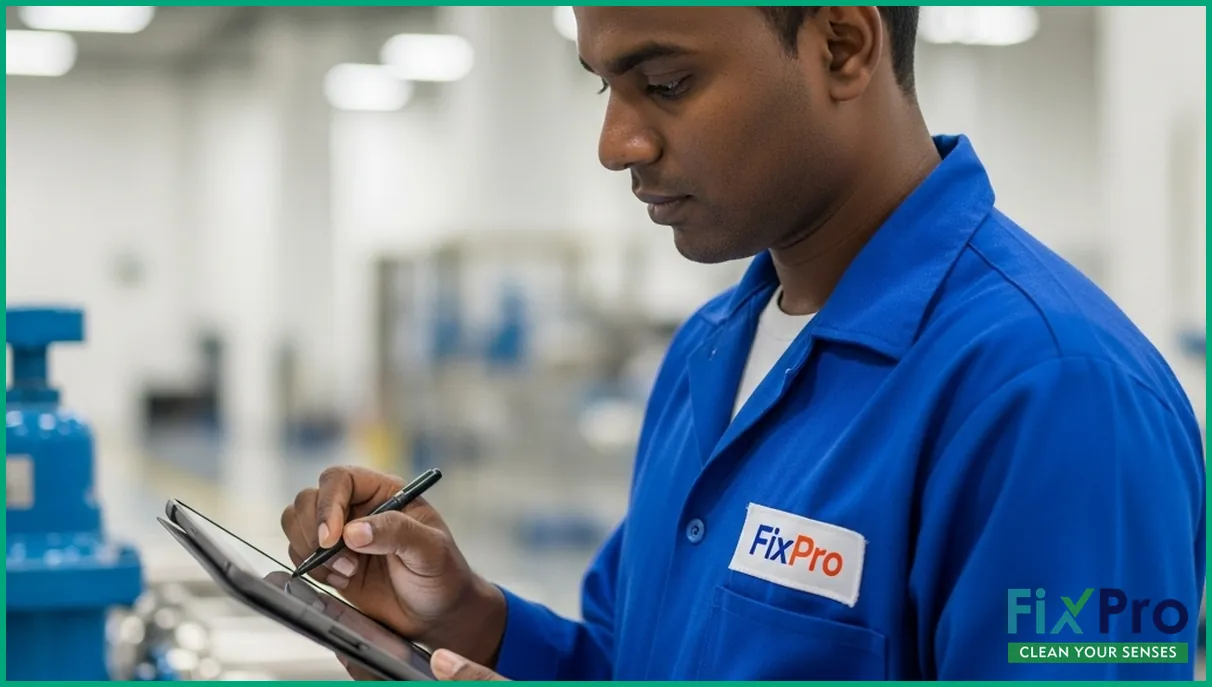
Preparation tip: Before inspections, gather all necessary tools (flashlight, gloves, wrenches, cleaning supplies) and review last month’s maintenance records. This helps you focus on known problem areas and spot new issues faster.
Pairing idea: Combine pump and valve inspections with water quality checks. Poor water quality can accelerate wear, so testing for hardness or salinity can inform your maintenance plan.
When to Call a Professional
Not all MEP issues can be handled in-house. If you notice persistent leaks, repeated electrical trips, or stuck valves despite basic fixes, it’s time to consult an expert. Service providers like fixpro bring experience and specialized tools to resolve complex problems and keep your systems compliant with local standards.
For more involved concerns, such as HVAC system failures, you may want to review HVAC maintenance options in Abu Dhabi as well. Professionals can also advise on upgrades, such as replacing old pumps with energy-efficient models or retrofitting panels with better surge protection.
Serving suggestion: Schedule annual full-system audits with a certified provider. This ensures all hidden or slow-developing issues are caught early, and your building remains safe and efficient year-round.
FAQs: MEP Asset Maintenance in Abu Dhabi
How often should I check my building’s pumps?
Inspect pumps monthly for leaks and pressure changes. In high-use environments like hotels or hospitals, consider biweekly checks. After major sandstorms, do a quick visual inspection for dust buildup or blocked vents.
What are signs of electrical panel trouble?
Watch for tripped breakers, hot surfaces, or flickering lights. Audible buzzing or popping sounds can also indicate loose connections. If you notice scorch marks or a burning smell, shut off power and call a professional immediately.
Can I lubricate valves myself?
You can lubricate accessible valve stems, but call a pro for stuck or corroded valves. Use food-grade lubricants for potable water systems, and avoid over-lubricating, which can attract dust and sand. Always wipe away excess lubricant and operate the valve several times after application.
What causes pump motors to fail?
Common causes are overheating, voltage issues, and poor lubrication. In Abu Dhabi, dust clogging cooling vents is a frequent culprit. Motors may also fail if impellers are jammed by debris or if bearings run dry.
Should I clean electrical panels myself?
Light dusting is safe, but deeper cleaning should be left to professionals. Use a dry cloth or vacuum (never wet cleaning) for surface dust. If you notice heavy buildup inside, call a licensed electrician.
Are there regional differences in MEP maintenance across Abu Dhabi?
Yes. Coastal areas experience more corrosion due to salt air, while inland and desert-edge locations face more dust and sand intrusion. Adapt your maintenance schedule and materials (e.g., use stainless steel or brass in coastal zones) to match your building’s environment.
What can I do if a valve is stuck and I need immediate flow control?
If a valve is stuck and you need to restore flow quickly, try gently tapping the valve body with a rubber mallet while applying steady turning pressure. If it still won’t move, do not force it—this can break the valve. Instead, isolate the section and call a professional.
How can I prepare my MEP systems for the summer season?
Before summer, clean all air vents and filters, check cooling fans, test backup generators, and inspect for leaks or corrosion. Consider scheduling a preventive maintenance visit to address any issues before peak demand hits.
Take the Next Step
If you’re dealing with persistent pump, panel, or valve issues, consider scheduling a professional inspection. Staying proactive helps avoid costly disruptions. For a full list of available support, check out comprehensive MEP services in Abu Dhabi. Don’t wait for a small issue to become a major breakdown—regular maintenance is the key to building safety, comfort, and efficiency.
